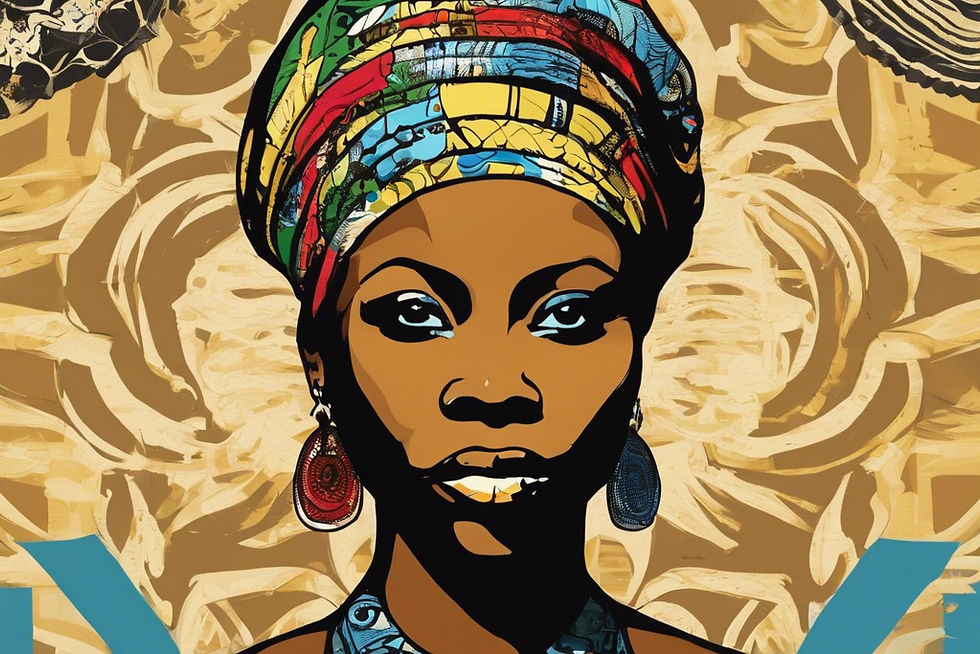Ancestral Inheritance: Understanding Traits Passed Through the Bloodline in Yorùbá Tradition
- Alaje Fadesiye

- Apr 11, 2024
- 3 min read
Updated: Aug 3, 2025
In Yorùbá culture, inheritance extends far beyond physical traits. It encompasses character (Ìwà), destiny (Ayànmọ̀), emotional tendencies, and spiritual imprints carried within one’s Orí (inner head) and bloodline. Recognizing these ancestral influences offers profound insight into our personality, relationships, struggles, and purpose. This journey requires not just reflection, but also cultural listening through family, divination, and ancestral presence.
Here are grounded ways to understand ancestral inheritance, the Yorùbá way:
Watch the Family Web
Notice the behaviors, roles, and emotional patterns in your family. Are there common threads—like caretaking, withdrawal, anger, generosity, silence, or resilience? These may signal ancestral energies repeating through generations. Noticing doesn’t mean judging—it means naming what is there so it can be understood. Are there ways certain family members cope with stress, respond to love, or carry responsibility? These shared tendencies may offer insight into what you’ve inherited not only through blood but through energetic patterns reinforced over time.
Listen to Stories, Names, and Sayings
Family narratives often carry hidden truths. Ask elders about your lineage. Learn the names of those who came before. What were their gifts? What did they struggle with? These stories are not just history—they are maps. Even sayings or repeated phrases can carry ancestral wisdom. Sit with them, and they’ll begin to speak. Keep a notebook of names, idioms, and memories shared by your elders. These details often contain subtle teachings and messages left behind by the ancestors to guide future generations.
Notice Recurring Roles
Many families have repeating roles: the healer, the fighter, the builder, the quiet one. These archetypes show up across generations. Which roles have you been drawn into? Which ones feel familiar even if you’ve never lived them? These inherited paths can be blessings or burdens. Naming them allows for understanding and choice. In Yorùbá tradition, these roles may also be linked to spiritual callings or lineages, sometimes even passed through initiatory paths. Becoming aware of your family's archetypes can help you claim or shift your inherited path.
Attend to Emotional Inheritance
Some ancestral legacies include pain, loss, or trauma. These may show up as fears, emotional triggers, or struggles you can’t explain. This is not your fault—it’s something to tend to. You can offer àdúrà (prayer), make offerings (àdìmú), or bathe in cooling herbs (èwẹ̀ ní lara) to ease the grip of those memories. Healing your heart also brings healing to your lineage. Emotional inheritance often lives in the body—sudden anger, grief, or fear may not start with you. Creating healing altars, speaking to the ancestors, and naming these emotions aloud can help shift intergenerational patterns.
Seek Divination and Elder Guidance
Sometimes ancestral traits are hidden or disguised. Divination—through Ifá or ẹ̀rìndínlógún—can bring clarity. Consult with a trusted Babaláwo, Ìyánífá, Babalórìṣà, or Ìyálòrìṣà to gain insight into your ancestral influences. Elders, too, carry lived memory. Their words often reveal what has been forgotten. They may remember patterns you haven’t seen or offer interpretations from a spiritual or cultural lens. In many cases, a simple proverb or short phrase from an elder can offer deep clarity. Let their memory serve as mirrors and maps.
In Closing
You are not disconnected. The emotions you carry, the habits you repeat, and the gifts you hold often come from long before you were born. Through reflection, listening, healing, and seeking spiritual insight, you begin to walk with deeper understanding.
When you honor what you’ve inherited, you gain the power to shape what is passed on.



Comments